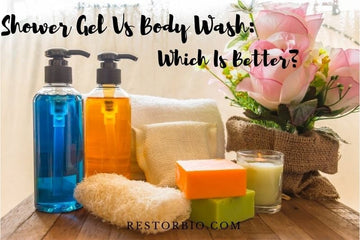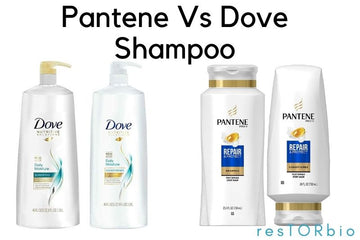
Shower gel and body wash are both types of personal care products that are used to cleanse the body. They are both available in liquid form and are generally applied to the skin with a cloth or sponge. While they share some similarities, there are also some key differences between shower gel vs body wash.
Key Differences Between Shower Gel and Shower Wash
When it comes to personal hygiene, choosing the right product for your skin type is crucial. Shower gels and shower washes are two popular options for cleansing your body during a shower. While these products may seem similar at first glance, there are some key differences that you should be aware of.
Firstly, shower gels are typically thicker in consistency than shower washes. They often contain more moisturizing ingredients such as glycerin, which can help to hydrate and nourish the skin. Shower washes, on the other hand, tend to be more lightweight and may contain more surfactants, which are designed to remove dirt and oil from the skin.
Another difference between shower gels and shower washes is the way they lather. Shower gels tend to produce a richer lather, which can make them feel more luxurious and indulgent. Shower washes, on the other hand, may not lather as much, but they can still effectively clean the skin.
When it comes to fragrance, shower gels often have a stronger scent than shower washes. This is because they typically contain more fragrance oils, which can linger on the skin for longer. Shower washes may have a more subtle scent, or they may be fragrance-free for those with sensitive skin.
Finally, it's worth noting that shower gels and shower washes may have different pH levels. Shower gels are often formulated to be more acidic, which can help to balance the skin's natural pH levels. Shower washes, on the other hand, may be more alkaline, which can help to remove dirt and oil from the skin.
Overall, the choice between shower gel and shower wash comes down to personal preference and skin type. If you have dry or sensitive skin, a moisturizing shower gel may be the best option. If you prefer a lightweight, refreshing cleanse, a shower wash may be more suitable.
Read also: Dove vs Aveeno body wash
What is a Shower Gel?
Shower gels are essentially liquid soaps or products that can be used on the body. However, some formulas can also be used on hair. It is an emulsion made from water and detergent, often with an added scent.
You can now find shower gels in a variety of colors and fragrances. They make beautiful additions to your bathroom shelf. They have soothing and moisturizing ingredients and are pH-balanced. Because of their gentle and soothing properties, they can be used by men and women.
Shower gels can double as shampoo substitutes. Some shower gels have mild conditioning agents. A gel can be used to wash hair as well as moisturize shampoos.

Understanding Shower Wash
Shower wash is a type of liquid soap that is specifically designed for use in the shower. It is a common alternative to traditional bar soap and is often preferred because it is easier to use and more hygienic. In this section, I will explain what shower wash is, how it differs from other types of soap, and why it is a popular choice among consumers.
Shower wash is typically a liquid soap that is formulated to be used in the shower. It is often sold in plastic bottles with a pump or squeeze dispenser for easy application. Unlike bar soap, which can become slippery and difficult to handle when wet, shower wash is designed to be easy to use in the shower.
One of the main differences between shower wash and other types of soap is that it is formulated to be gentle on the skin. Many shower wash products contain moisturizing ingredients such as glycerin or aloe vera, which help to hydrate and soothe the skin. This makes shower wash a popular choice for people with sensitive skin or those who are prone to dryness or irritation.
Another advantage of shower wash is that it is more hygienic than traditional bar soap. Because it is dispensed in liquid form, there is less chance of bacteria or germs being transferred from person to person. Additionally, many shower wash products contain antimicrobial agents that help to kill bacteria and keep the skin clean and healthy.
What are the Ingredients in a Shower Gel?
Shower gels are fun, soothing, and beautifully fragranced, making them attractive for bath time. With the wide range of products available now, you can rest assured that they have become an integral part of our bathroom shelves.
But do you know what they do to your skin? Shower gels are made from different ingredients, just like any other product. Some products can dry out or cause skin irritations, which is not good news.
The warm water opens the pores and makes it easier to absorb ingredients. You are at risk if you use a shower gel that contains questionable ingredients.
Take a look at your favorite ingredients to get a better understanding of what you're applying to your skin. Shower gels contain six elements that are essential for cleansing, moisturizing, lathering, and other functions:
- Water: This is how the product maintains its consistency. It is also used as a liquid solvent to dissolve other ingredients.
- Emulsifiers: These are responsible for foaming and thickening bath gels. This is how gel-like consistency is achieved.
- Detergents: This soap is used to clean the skin.
- Surfactants: These ingredients are used on the skin to make lather and foam.
- Preservatives: Shower gels have a limited shelf life. Preservatives keep them safe from microbial contamination.
- Fragrance: This is what makes using shower gels a pleasant experience. A product with a natural scent from essential oils and plant extracts is a good choice.
Shower Gel Vs Body Wash: The Pros and Cons
Body wash and shower gel are liquid cleaners for the skin. The shower gel is a gel-like consistency with a high level of fragrance. The body wash is usually thinner in consistency and gentler for the skin. Both products contain surfactants that create a rich, foamy lather.
Let's take a look at the pros and cons of each product before you grab your washcloth. Here's our handy guide to shower gel vs. body wash:
Shower Gel
Pros
- Makes oily, acne-prone skin less oily
- Use in humid, warm climates
- Your skin retains your scent longer
Cons
- Doesn't infuse the skin with moisture
- Can be too harsh for dry and sensitive skin
Body Wash
Pros
- Normal-dry skin needs moisture
- Cold weather: Keeps skin hydrated
- Sensitive skin will be treated gently
Cons
- Not recommended for oily skin
- X-rich products may worsen acne
Also Read: Best Body Wash: Take Care Your Skin

Shower Gel Vs Body Wash - Comparison
Both serve the same purpose is Cleanse the body.
However, the methods they use and the added benefits are different. They can be combined with a bath sponge or mitt to create more lather since they are both liquids.
Shower gels and body washes can be used by men and women alike, as well as children and infants. However, the formulae and ingredients will differ for each person.
Shower gels and body wash are very similar, and people often use them interchangeably. There is, however, a distinction between them. They can both be used on the body with liquid cleansers, but the difference is textural.
The shower gel is firmer and more gel-like, while body wash has more liquid soap consistency. Body washes, however, are moisturizing and hydrating more than shower gels due to their formulation.
Shower gels have a more pungent scent than body washes and contain more pleasant ingredients to the nose.
Cost Comparison
When it comes to choosing between shower gel and shower wash, cost is an important factor to consider. In my personal experience, I have found that shower gel tends to be more expensive than shower wash. However, this may not always be the case, as prices can vary depending on the brand and retailer.
To illustrate this point, I conducted a quick online search for popular shower gel and shower wash brands. Here is a comparison of the prices I found:
| Brand | Product | Price (per ounce) |
|---|---|---|
| Dove | Shower Gel | $0.37 |
| Olay | Shower Gel | $0.47 |
| Aveeno | Shower Wash | $0.32 |
| Nivea | Shower Wash | $0.26 |
How To Make the Most of Your Body Wash or Shower Gel
As we mentioned, shower gels and body washes are not a new idea. There are many options for cleansing your body.
There are always new products and formulas to choose from. We consulted Dr. Flor A. Mayoral, a Miami-based dermatologist, to answer our most pressing questions about how to shower and use our body cleansers. These are some of our top tips to make this routine as easy and efficient as possible.
1. Consider Your Environment
It may seem like a personal choice to shower every day or not. You need to listen to your body and take into account your environment.
Mayoral says, "Living within a hot, humid environment, I recommend daily Showers to my Patients." To maintain their skin health, patients with sensitive skin may need to rinse their entire bodies.
2. Be aware of Sensitive Areas
You should use gentle cleansing products and the proper temperature water to avoid irritation, regardless of whether you have sensitive skin.
She says mild cleansers are best for people with sensitive skin. They may not be the best-lathering products, but they protect the skin's barrier. Use warm, tepid, or cool water. Apply moisturizer to dampened skin and keep your skin underwater for a short time.
3. Select Your Cleansing Tool Carefully
A loofah, or gentle washcloth, can be used to exfoliate and cleanse. Dr. Mayoral suggests that you avoid harsh loofahs for sensitive skin.
Editor's tip - You can also apply your body wash/shower gel with your hands -- it's both the easiest and most economical. Whatever product you choose, use a little bit to coat your hands in it while you're in hot water. Use your hands to massage the product into your skin. Then, continue as usual, focusing on all the areas. This is a great way to ensure you aren't using any cutting tools that irritate your skin. Your skin should not feel raw or red after washing.




